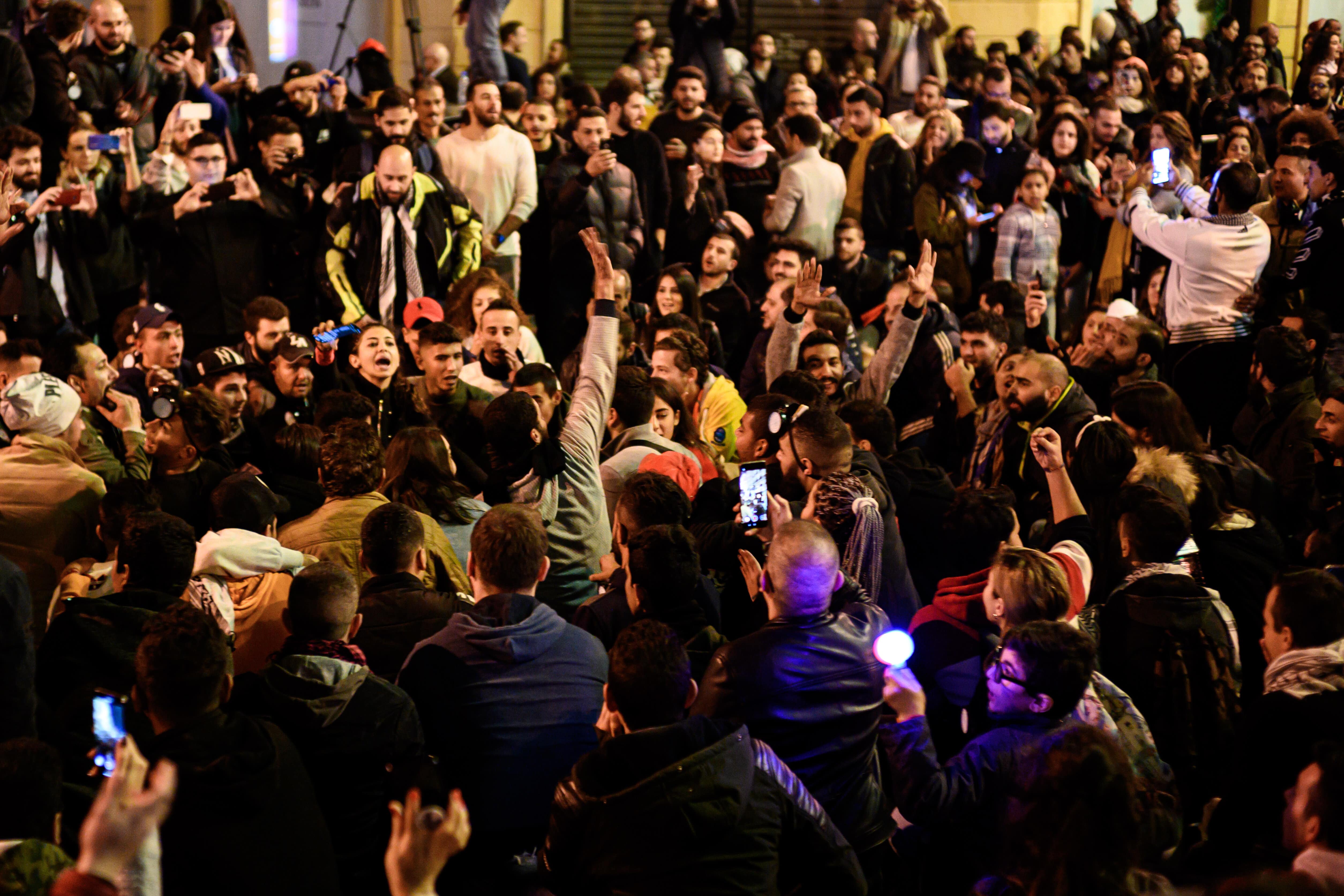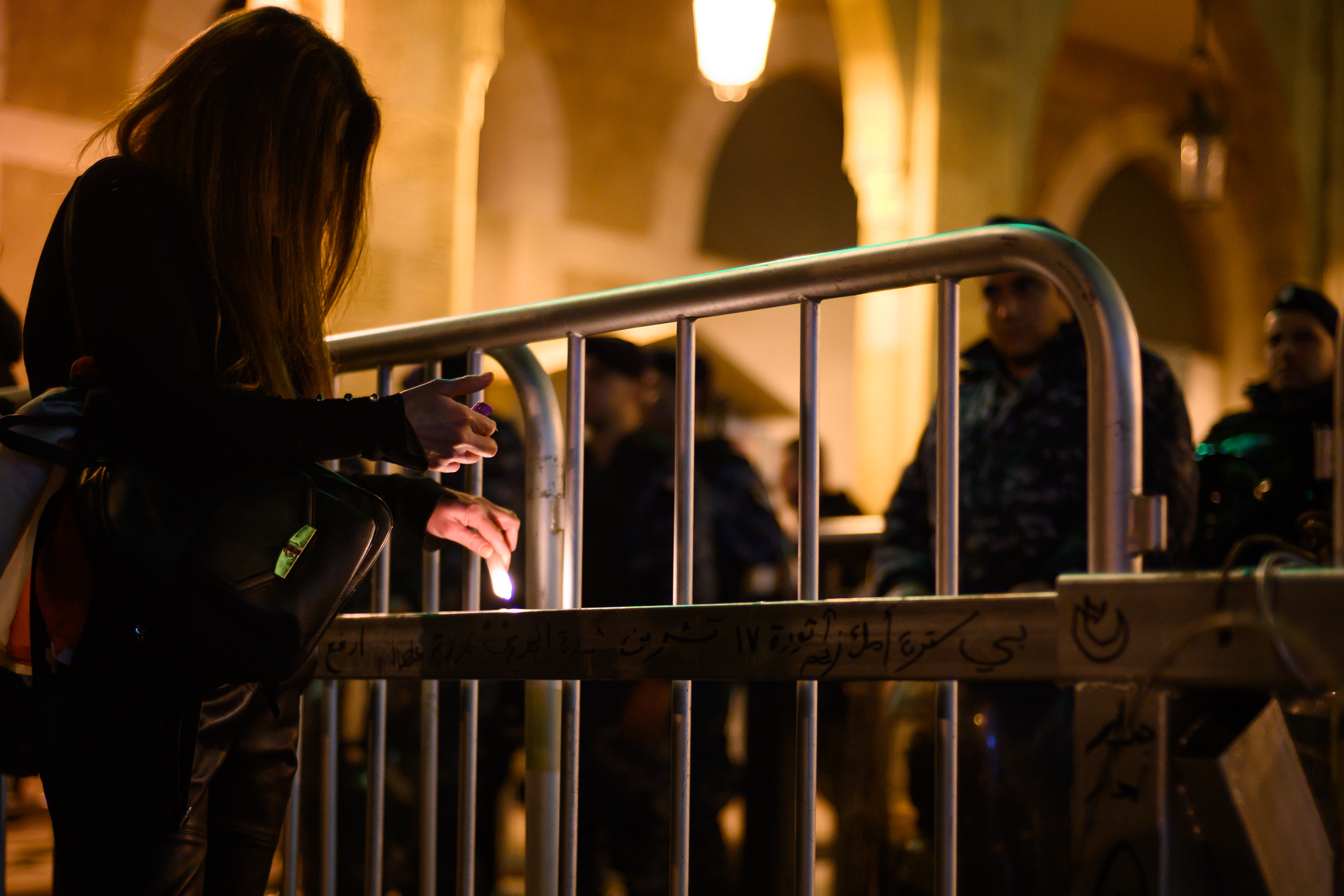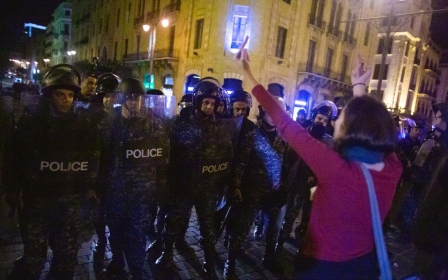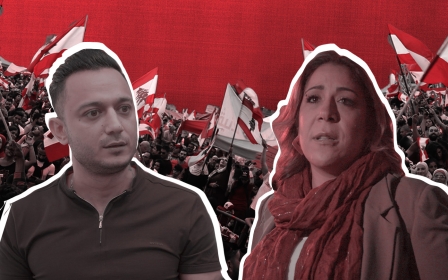'Trust is lost': Protests continue in Beirut as Lebanon picks new PM
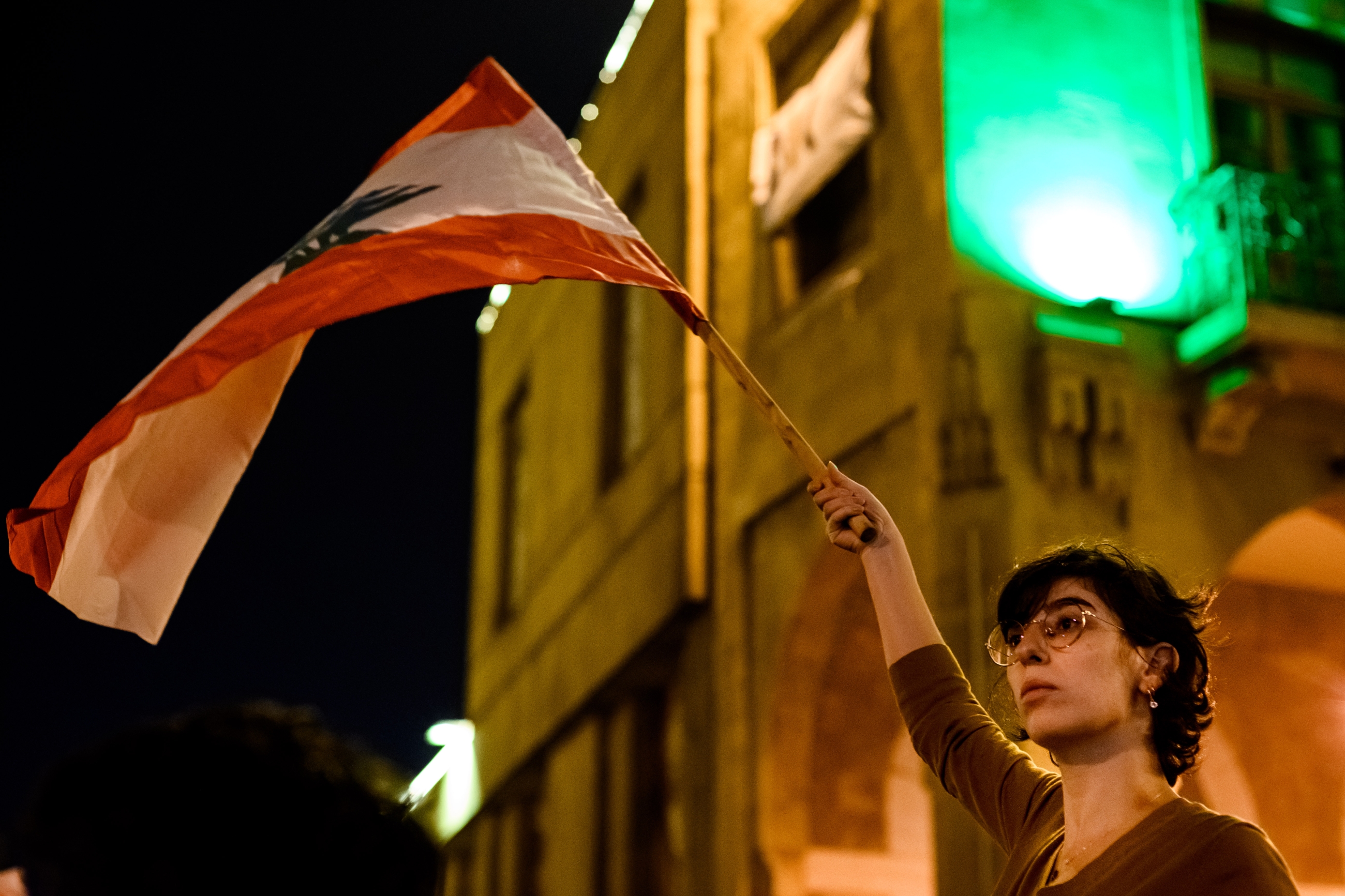
Debris has been cleared from the streets of central Beirut; anger still remains.
Despite a violent crackdown by Lebanon's security forces a few nights ago, hundreds of protesters thronged central Beirut late Thursday to vent their anger at the appointment of Prime Minister Hassan Diab.
Readying themselves for potential further violence, some wore bicycle helmets and hard hats, while others carried gas masks in case tear gas should be used.
"I'm angry because of the election today," said Mia, a woman in her late 40s with close-cropped hair.
'We need democracy, we need a real functioning government'
- Lena, 49-year-old protester
The health club owner lamented the that Diab had previously been a member of the government, a part of the political establishment that oversaw Lebanon's ongoing economic crisis. "For us, he's corrupted," she said. "The trust of the people is completely lost."
New MEE newsletter: Jerusalem Dispatch
Sign up to get the latest insights and analysis on Israel-Palestine, alongside Turkey Unpacked and other MEE newsletters
Mass protests have raged across Lebanon for weeks in response to planned tax hikes, widespread corruption and government inefficiency.
Since mid-October, daily protests have called for the removal of the political class and an end to corruption and the sectarian system that have kept the same politicians in power for decades.
The country is currently mired in its worst economic crisis since the 1975-1990 civil war, with big government spending resulting in one of the highest debt-to-GDP ratios in the world.
The country is also facing a dollar liquidity crisis, with banks limiting the withdrawal and transfer of the greenback, which has been selling for more than 2,000 Lebanese pounds on the parallel market for the first time since it was officially pegged at 1,507 in 1997.
'It's either us or them'
Earlier on Thursday, Diab, who served as education minister from 2011 to 2014 in a cabinet made up of Hezbollah and its allies, said there was "no going back to before October 17", the day the demonstrations began.
"I call on the Lebanese in all squares and areas to be partners in a workshop of reform," Diab said in a televised address after being nominated as prime minister.
Some of those on the streets were willing to give Diab the benefit of the doubt. “We should wait to see,” said 23-year-old business student Mohammad Ali, who said he had come down to demonstrate against the economic situation in general, rather than Diab’s appointment in particular.
"We want a better living situation, and he's got to fix the economy," added Ali. His patience would only stretch so far, however, as he said he would give Diab "one chance only".
Still, most had decided not to support Diab's appointment, given his previous experience in government and the fact that his support came only from Hezbollah and its allies. Diab, a Sunni, won the endorsement of only six MPs from his own sect.
The revolution's most popular chants were quickly adapted to accommodate Diab - "All of them means all of them, and Hassan’s one of them."
One inventive protester reworked the Christmas carol 'Jingle Bells' into a chant against the new prime minister.
With the economy crashing and rising violence, some of those downtown on Thursday saw remaining in the streets as a matter of life and death.
Mia's friend Nadine expressed her concern at the escalating violence. "Soon we will be at home, you and me, because on the street there will be another [kind of] people fighting, and with real guns," she said.
Lena, a 49-year-old who works in an engineering company, said: "We are at the point [where] it's either us or them, so we cannot leave the street.
"We need democracy, we need a real functioning government. It [has] reached the point where we can't see the end of the tunnel."
This article is available in French on Middle East Eye French edition.
Middle East Eye delivers independent and unrivalled coverage and analysis of the Middle East, North Africa and beyond. To learn more about republishing this content and the associated fees, please fill out this form. More about MEE can be found here.


